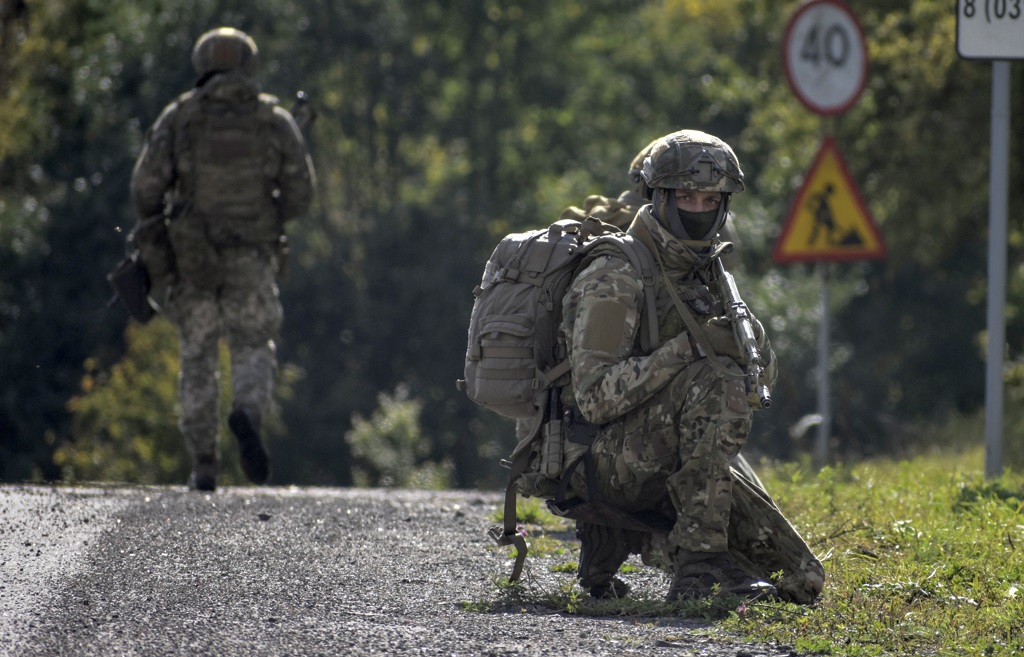The Peninsula
Ukraine, North Korea, and the Currency of Military Force

It will take time for the ramifications of Russia’s invasion of Ukraine to become apparent, but we can see already that military force has, at least for the moment, swept aside international norms and diplomacy. The implications are not just European but global. Who now is going to convince Kim Jong-un that the world is a reasonable place? The premise of North Korean denuclearization is that nuclear deterrence is expensive, risky, and unnecessary in a world where commitments are honored, sovereignty is respected, and peaceful engagement is more advantageous than threatening the use of military force. Putin’s invasion of Ukraine has made that premise look either like a lie or an illusion.
Diplomacy and military force are not antithetical. Revanchist states have been deterred, and peaceful settlements achieved, by diplomats who have been able to argue that the cost of war was higher than the price of peace—in part because military power stood behind them. In a better world, we would not need police to enforce laws or militaries to back diplomacy but that unfortunately is not our world.
Nevertheless, after the horrors of the first half of the twentieth century, the history of our time has been one of promoting the means to peacefully settle disputes. The United Nations, the European Union, the Organization for Security and Cooperation in Europe (OSCE), the World Trade Organization (WTO), and the Organization for the Prohibition of Chemical Weapons (OPCW), are just a few of the post-war entities that were created as alternatives to “might makes right” dispute settlement. “Rules based order” is not an empty slogan, it is a choice that following rules, even or especially when you lose by it, is worth it to maintain peace and stability.
Of course, post-war Utopia has not been achieved and recent decades have been riddled with military conflicts large and small, short and long. What is shocking about Russia’s naked aggression against Ukraine is Putin’s assertion that Ukraine has no right to exist except as an appendage of a greater Russia. The founding of the United Nations in 1945, or the Treaty of Versailles in 1919, or even the Congress of Vienna in 1815, were supposed to have made such claims obsolete.
Russia’s diplomacy over the past few months has turned out to be nothing more than the setting out of pretexts for a military campaign that it was going to conduct no matter what. For a great power to show total disregard for international systems, treaties, or opinion, and to have left Ukraine with no peaceful option is new and disturbing. Ukraine was neither a rogue regime nor a fragile state. It did nothing to invite invasion other than to exist.
What conclusions is Pyongyang drawing from watching Russia’s attack on Ukraine? The most obvious is that Ukraine erred grievously, perhaps fatally, in giving up its nuclear arsenal in exchange for solemn international commitments, including from the United States, United Kingdom, and Russia, that Ukraine’s independence would be respected if it did so.
The more general lesson that North Korea, among other countries, may be learning from Russia’s invasion of Ukraine is that the international system is not reasonable but barbarous. Without a nuclear deterrent or reliable allies, no country is safe. North Korea lacks the latter so it will keep the former. We should not give up on the long-term goal of a denuclearized North Korea, but Putin has made achieving that much harder.
Mark Tokola is the Vice President of the Korea Economic Institute of America. The views expressed here are his own.
Photo from the Ministry of Defense of Ukraine’s photostream on flickr Creative Commons.
